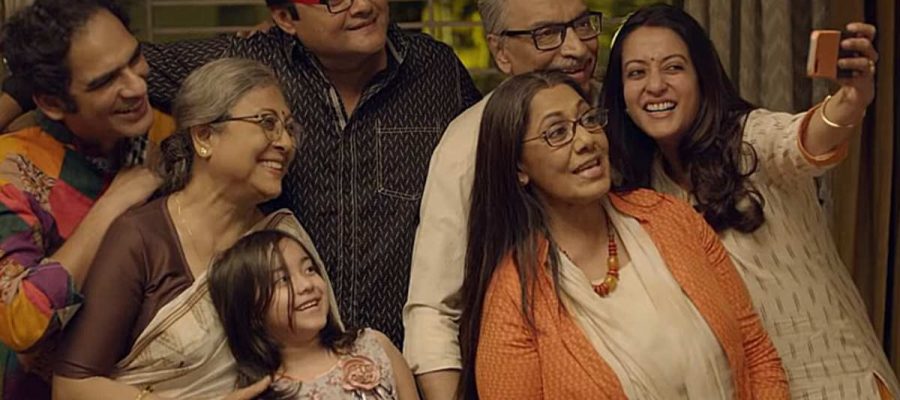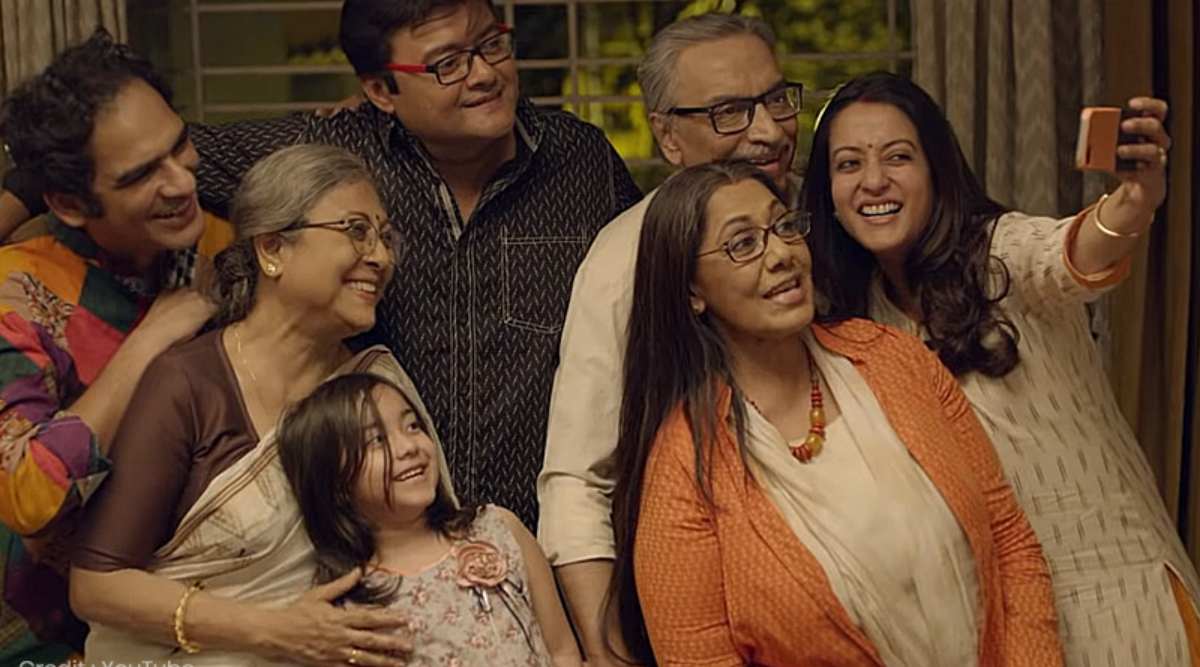Tarikh review: Tarikh, starring Saswata Chatterjee and Raima Sen, which won the National Award for best screenplay in 2019, is a compelling portrait of urban relationships, using the threads of interpersonal misgivings and unrequited desires to craft an affecting tale of associations.
Memories sustain through associations and events. Events, in turn, are bookmarked by dates. Numbers, sparse on the surface, contain a lifetime of information, drawing up a timeline of life.
Social media runs on a similar algorithm, archiving moments to schedule remembrance. Urgency of documentation ensures life exists at both quarters– real and virtual–but while one bears the curse of mortality, the other is blessed with stationary immortality. Churni Ganguly’s Tarikh–pursuing the closure that souvenirs imprinted in digital reams can provide– unfolds as incidents attested with dates, the narrative style similar to trawling through someone’s feed. This intersection of perception and reality, days and dates, life and death form the crux of her sophomore outing.
The film opens on April 26, 2018 but begins three years before on the same occasion, delineating how any date can be infected with varied meanings with the passage of time. It centres on a middle-class couple, Anirban Gupta and Ira (Saswata Chatterjee and Raima Sen in impressive turns). Although childhood sweethearts, they grew up to be different people. Anirban is an intellectual who remembers to pack a Murakami before his clothes. A professor by profession, he is also an incurable idealist, convinced that ideas can change the world. Ira, on the other hand, stutters pronouncing Engels. Her universe is limited to her husband and their daughter Niharika. In spite of the shared love, discontent mounts. He wants her to expand her world, she wants him to look at her more. He would rather spend his birthday far-removed in London, immersed in books. Her days are incomplete without him.
Then there is Rudrangshu (the inimitable Ritwick Chakraborty), Anirban’s friend and Ira’s confidante. He is a fixture in their lives, a conduit between the couple. His affiliations sway but his affection bends more towards her. Anirban is adrift but Rudrangshu is always present, curiously filling the role of an absentee-husband in the arrangement. The dynamic of their interpersonal bonds, the way they forge and avoid dependence on each inform the proceedings of the narrative.
On the surface Tarikh, which won the National Award for best screenplay in 2019, is a compelling portrait of urban relationships, using the threads of interpersonal misgivings and unrequited desires to craft an affecting tale of associations. By recognising mutual resentments and refusing to undermine perspectives, the film lends a rousing emotional core to an unusual alliance, exhibiting genuine understanding of human failings. It is a persuasive exploration of love and friendships, the way they resist being self contained, spilling often in reassuring ways.
But its preoccupation lies elsewhere. In a world increasingly impatient with idealism, Ganguly’s film makes a case for its relevance, pursuing why taking a stand and nurturing new voices remain important.
Although all three characters headline the film, it is Anirban who Tarikh is concerned with. He is an “insufferable escapist”, a man bred on Milan Kundera and Albert Camus, Marx and Engels rendered immobile in the real world. His insecurities are personal, the sense of personal failure acute. He is fighting with himself more than others, struggling to match up with those he had idealised for the longest time. Anirban is a deeply flawed character.
Ganguly holds nothing back — his condescension towards his wife, bitterness towards his friend, wracking guilt and fragile ego. He is the armchair intellectual limited to dispensing wisdom in the safety net of his classroom. He is the apathetic husband embarrassed by his wife’s limiting worldview and jealous of his friend’s investment in his marriage.
But the problem is in spite of her critique, the director offsets it with a kind of poignant empathy. In her hands Anirban ends up as a circumstantial failure, a misfit with his morality intact. His flaws come across as frustrations. The inclusion of the ‘twist’ at the end, although gimmicky with the abject purpose of providing a closure, further humanises and at once elevates him.
Tarikh came out in 2019, close on the heels of the MeToo movement (2018), which apart from uncovering instances of systematic abuse revealed a deep chasm between art and artists, ideals and idealists. The pervasiveness of sexual exploitation left no one holy, no institution untouched. Ganguly touches upon it by including a subplot of a professor accused of molesting a student. But her willingness to posit Anirban as the far end of this spectrum points to her belief that such people also exist.
My grouse is not her optimism but her refusal to distinguish between idealism and idealists, in her strengthening a discourse which has long fractured under the weight of immorality. Maybe people like Anirban, with their pocket full of ethics and disposition to call for a change through art or social media exist. Ganguly believes so. I hope so. But by romanticising his “insufferable escapism” she also, inadvertently, sanctions his follies and sustains his moral high ground. She reasons for his disdain, accounts for his unkindness towards Ira as helpless retaliation. This is a misleading precedent. Social media is evidence.
(Tarikh is streaming on Hoichoi)
Source: Read Full Article


